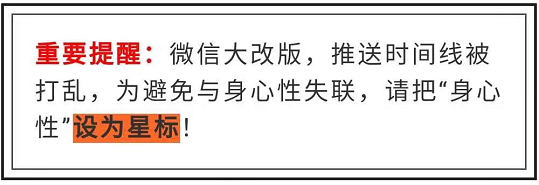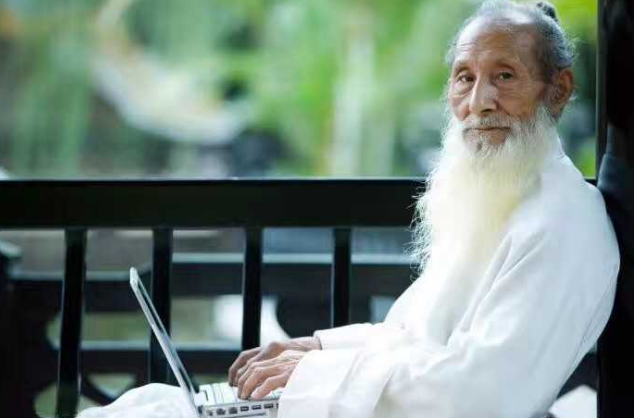
1. What is True Health Preservation?
Nowadays, people are increasingly focusing on health preservation. Is health preservation merely about exercising to strengthen the body, or is it about eating well to maintain one’s form? The ancients said: “Those who are good at health preservation nourish the spirit above, the form in the middle, and the muscles and bones below.” This means that true health preservation is not just about maintaining the body; it is also about nourishing our spirit and intellect, cultivating our life, and achieving harmony between body and mind.

2. How to Preserve Health?
(1) Follow Nature, Unity of Heaven and Man
In today’s fast-paced society, people often neglect their emotions and health due to stress. Often, when a person achieves success, their spirit dissipates, and health is lost. So, how can we nourish our spirit? How can we reach the highest realm of health preservation? This requires an understanding of our oldest traditional culture—the Dao.
The Dao is the fundamental principle of the universe. In Daoist health preservation, the key is the unity of heaven and man. How can we achieve this unity? Laozi said, “Man follows the Earth, the Earth follows Heaven, Heaven follows the Dao, and the Dao follows Nature.” The Dao represents the laws of nature, which vary in magnitude. The laws of a specific time and space are not eternal. For example, in winter, the northern regions may be below freezing, while the southern regions remain warm as spring. The ‘nature’ in the Dao refers to the great laws of the universe, which are infinite and ever-present. You cannot see it, but you experience it at all times. The four seasons, the changes in weather, and the cycles of life all reflect this.
Understanding health preservation means understanding how to follow nature, which brings us closer to all things. Each person is a small universe with unique characteristics, yet we all receive information and inspiration from nature and the greater universe. When the small universe of the human body aligns perfectly with the larger universe of nature, we achieve the highest state of unity between heaven and man.
Currently, public health preservation is still limited to basic health: believing that eating healthily and exercising moderately will lead to better health. However, no one has proposed the idea of living longer and more freely. Many Daoist teachings reveal the secrets of longevity. Human life has a certain limit. This limit refers to the natural lifespan, known in Traditional Chinese Medicine (TCM) as “Tian Nian” (天年). So, how long should a person live? The “Huangdi Neijing” (黄帝内经) suggests a lifespan of one hundred years, as stated in the “Suwen Shanggu Tianzhen Lun” (素问上古天真论): “To complete one’s natural lifespan, one should live to one hundred years.” The “Liji” (礼记) refers to one hundred years as “Qiyi” (期颐). The “Shangshu” (尚书) proposes that “one should live to one hundred and twenty years to fulfill their natural lifespan.” The great philosopher Wang Chong stated: “A lifespan of one hundred years is the correct number for human life, just as things die in autumn at their proper time.” The famous health preserver Ji Kang from the Jin Dynasty believed that “one can live up to one hundred and twenty years, which is consistent across ages.”
Based on the above, the human lifespan should be around 100-120 years. However, reality shows that the vast majority of people do not reach their natural lifespan. Why can’t they enjoy their “Tian Nian”? The fundamental reason is the failure to achieve the unity of heaven and man, to follow nature.
What is the most precious thing in life? — Life
What is the most valuable thing in life? — Health
What is the most precious thing about health? — Health preservation!
What is the key to health preservation? — Nature!
To follow nature, we must first understand it. Nature is all around us, in every aspect. In the animal kingdom, some animals hibernate in winter, while others grow thick fur to survive. In spring, as the earth warms, animals begin to forage. Summer is the most active season for all living beings, while autumn is a time for storing food. Animals understand how to live in harmony with nature better than humans. They are born health preservers. Scientific research shows that their actual lifespans often exceed their “Tian Nian.” Therefore, we should learn from animals. The ancients also learned from animals in their health preservation practices. For example, the “Wuqinxi” (五禽戏), “Bajingduan” (八锦缎), and various martial arts were all established based on imitating animals.
Today, people are preoccupied with fame and fortune, constantly competing, and dealing with the complexities of family and society, which distracts their spirit. When the spirit cannot concentrate, health will inevitably decline. In fact, following nature in health preservation is quite simple. When you see the sun rise, get up; when you see the sun set, rest. Reduce work and drinking. Less socializing will lead to better health and a longer life. Simply put, it is about “following the sun.” Everything follows the sun. The sun is warm, bright, and active, just like the Yang Qi (阳气) in TCM. Only by following the sun’s rhythm can the Yang Qi in the body be abundant. When the Yang Qi is abundant, health and longevity will naturally follow. Daoist cultivation aims to achieve pure Yang, but for ordinary people, it is sufficient to have abundant Yang Qi to enjoy a long life. How to ensure the Yang Qi is abundant? It comes from the great cosmic fireball—the sun.
To thrive, one must follow; to perish, one must go against. If you go to bed early and rise early, you are following. If you stay up late and sleep in, you are going against. The unity of heaven and man fundamentally means achieving a perfect combination with nature in terms of time and laws. This is not difficult to achieve. Try to reduce socializing at night and increase rest. Reduce excitement and increase tranquility. Gradually, the spirit will become calm, and the body will naturally synchronize with heaven and earth. True health preservation will then begin.
The Medicine King Sun Simiao once said, “After forty, one should focus on health preservation.” At forty, the human body begins to decline, much like a car that has run 400,000 kilometers and needs a major overhaul; otherwise, it will be difficult to function normally. Is it only at forty that one should focus on health preservation? No. We know that human nature has weaknesses. The most fatal one is that “only after losing something do we realize its value.” At forty, health is often already lost, which is why people become anxious and start to focus on health preservation. In fact, “things grow old as they flourish; extremes lead to reversals.” When a person is at their youngest and most energetic, they are also heading towards aging, so they should focus on health preservation and recognize the concept of unity of heaven and man, actively cooperating with it. However, today’s youth often indulge in pleasure and fail to realize they are already aging. We should help people understand their bodies and the Daoist concepts of health preservation, preventing minor issues from escalating. We should practice “when strong, know to preserve; when old, know to prolong.”
Having discussed the importance of following nature as the first step towards unity of heaven and man, let’s talk about specific practices. First, let’s discuss health preservation through the four seasons.
(2) Health Preservation Through the Four Seasons
1) Key Points for Seasonal Health Preservation
Health preservation through the four seasons has been recorded in the “Huangdi Neijing” (黄帝内经) for a long time.
“Spring is the time when the weather gives life, and the earth begins to sprout. One should sleep early and rise early, take gentle walks, and breathe deeply to nourish the Yang Qi, which supports the spirit.” This means that spring is windy, and laziness and lack of exercise can lead to depression, preventing the Yang from flourishing. Therefore, one should rise early, take walks, and breathe deeply. Loosen clothing and hair, and stroll to nourish the Yang Qi. Spring corresponds to the liver; some women may experience sleep disturbances before and after menstruation, with blood flowing down and Qi floating up. Women prioritize the liver, which stores blood. When liver blood is insufficient, sleep is affected. Insufficient liver Yin leads to an inability to restrain Yang, causing insomnia. In spring, one should focus on nourishing the liver and replenishing liver blood. Both men and women should consume some “Wuji Bai Feng Wan” (乌鸡白凤丸), which is a very good formula, proven effective over hundreds of years. Some men may question why they should take a formula primarily for women. It is because women are blood-oriented, so they use it more, but men also experience fatigue in spring due to insufficient liver Yin.
“Summer is the time when heaven and earth interact, and all things flourish. One should sleep early and rise early, greet the sun with gentle walks, calm the heart and nourish the spirit, allowing the fruits to flourish, and clear the stagnation to promote the flow of Qi.” In summer, humidity can lead to chest and rib ailments, and phlegm can accumulate. This is because summer is a time of balance between Yin and Yang, with all things thriving. One should sleep early and rise early, welcoming the morning sun with walks, calming the heart and nourishing the spirit to enhance the beauty of the newly ripening fruits. This is the time when turbid Qi descends and clear Yang rises. If one goes against this, their small universe will experience an imbalance of Yin and Yang. Yin cannot descend, and Yang cannot rise, leading to stagnation in the middle burner. The best remedy is to exercise and sweat, allowing the pores and skin to breathe. Do not stay in air-conditioned rooms all day. In summer, excessive sweating can lead to feelings of anxiety and shortness of breath, as the Yang Qi disperses with sweat. TCM practitioners may recommend “Sheng Mai Yin” (生脉饮), ginseng, Mai Dong (麦冬), and Wu Wei Zi (五味子) during this time. Consuming these in summer will not cause heat, as they address insufficient Qi and blood, and are beneficial for treating summer heat. Ginseng replenishes the middle Qi, Wu Wei Zi calms the heart Qi, and Mai Dong clears lung Qi. Drinking “Sheng Mai Yin” in summer will help prevent fatigue.
“Autumn is the time when the wind rises and the earth’s Qi becomes evident. One should sleep early and rise early, waking with the rooster. Maintain a calm heart and mind, guard the spirit, and stand quietly outside to ease the autumn chill.” We know that in ancient times, executions were often carried out in autumn, as the ancients emphasized following nature. In autumn, especially after autumn, the atmosphere becomes heavy with the Qi of death. The autumn wind is fierce, making it difficult for Yang Qi to gather while Yin Qi becomes prominent. The summer heat has not yet dissipated, and the dry winds begin to blow. Wind can invade the lungs, making the shoulders and back susceptible to illness. To avoid this, one should adopt a rooster-like schedule. Maintain a calm heart and avoid anger. This will help mitigate the harshness of autumn. Autumn corresponds to the lungs; it is a season when Qi and blood move inward. As leaves turn yellow, Qi and blood begin to gather inward. TCM states that the lungs govern the regulation of Qi, allowing Qi and blood to move inward to adapt to natural changes. As Qi and blood move inward, autumn dryness can lead to coughs. At this time, it is recommended to consume some pear syrup, as pears are rich in moisture and can help nourish the lungs, facilitating the inward movement of Qi and blood.
“Winter is the time when all things are dormant, and water freezes and the earth cracks. One should sleep early and rise late, waiting for sunlight. Keep the spirit hidden and do not stray, avoid the cold and seek warmth, take gentle walks in the courtyard, and do not exhaust the bones, avoiding the leakage of Yang.” Many animals hibernate in winter because it is a season for rest and recuperation. We must pay special attention to both body and spirit during this time. Sleep early and rise late, waiting for the sun to rise before exercising. Exercise should not be excessive; it is best to maintain a slight warmth without sweating. Excessive sweating in winter is akin to leaking Yang Qi. In winter, heavy snow seals the mountains, and all Qi and blood are stored within. There is excess within and deficiency outside. This is the perfect time for nourishment, which is why in old Beijing, people would start eating lamb after autumn, as there is no need to eat hot pot in summer when Qi and blood are outside.
The above are the key points for seasonal health preservation. Combining TCM theories and methods can enhance health. There is a saying: “Moxibustion in spring, acupuncture in summer, cupping in autumn, and tapping in winter.” Following the seasons, how can diseases arise? This aligns with the seasonal laws. In early spring, moxibustion is needed to dispel the cold evils accumulated over winter while warming the Yang Qi. In summer, Yang Qi is on the surface, so acupuncture is used to release the pores and skin. In autumn, the wind is strong, making one susceptible to wind evils, and cupping is the best response. In winter, stagnation is common, and tapping to warm the body is the best health practice. The wisdom of life is actually all around us.
2) Life is in the Balance of Movement and Stillness
Finally, two issues must be noted. The “Neijing” (内经) mentions that seasonal health preservation involves both stillness and movement. Stillness refers to maintaining a calm spirit, regardless of the season. The spirit should not be disturbed, and one’s will should not waver. Extreme anger, excessive joy, or worry are all inappropriate. Movement does not mean running fast; it refers to gentle walking, akin to strolling, and not intense physical exercise. Many people want to lose weight and run vigorously every day, but the results are often poor. Excessive intense exercise depletes one’s Yang Qi. Only gentle exercise is needed for health preservation. Remember this balance of stillness and movement. The key to seasonal health preservation lies within.
3) Health Preservation Through the Twenty-Four Solar Terms
Seasonal health preservation can be further refined into the twenty-four solar terms of the year.
We know that there are three hundred sixty-five days in a year, divided into four seasons, twelve months, and twenty-four solar terms. How should we approach each solar term?
Here is a summary of health preservation methods for the twenty-four solar terms:
Major Cold and Beginning of Spring: The weather transitions from the coldest to warming. Excessive gallbladder Qi can interfere with lung Qi. Lung Qi is vulnerable to cold, leading to colds and fevers. If the upper burner is affected by cold, one should release it with spicy dispersing herbs. Knowing this can lead to health and longevity.
Rain Water and Awakening of Insects: Nature seems to awaken from slumber, and our heart and lungs can easily become stagnant. It is advisable to promote blood circulation and resolve phlegm. At this time, the spleen is weak, and liver Qi can easily become stagnant, so one should exercise more to disperse the stagnant Qi. Appropriate nourishing foods and herbs are recommended to strengthen the spleen and stomach.
Spring Equinox and Clear and Bright: At this time, all things revive, the soil softens, and plants begin to grow, but they are still tender. The human body is similar; the liver and spleen are both weak, so medications or foods should be spicy and dispersing (such as cilantro, fennel, mint, etc.). If one frequently eats snacks or drinks cold water, it can burden the spleen and stomach, making one susceptible to colds. Children with fevers should use medications that clear the intestines and resolve stagnation.
Grain Rain and Beginning of Summer: Rain begins to increase, and grains start to grow. The small intestine, which governs digestion, becomes active at this time. Therefore, we can use moxibustion on the small intestine area (below the navel). Additionally, consuming grains and cereals can help nourish the intestines and spleen. For heat symptoms, clear the lower burner, while for cold symptoms, warming tonics are appropriate. Be cautious with patients suffering from cold blood and kidney cold; they should not receive moxibustion on the small intestine.
Small Full and Grain in Ear: Grains begin to fill out. We should pay attention to the kidneys and large intestine, using herbs that nourish Yin and benefit Qi. Combine this with massage below the navel to promote heart health. For those who sweat excessively, bone broth is beneficial (cooked for no more than two hours).
Summer Solstice and Minor Heat: The weather gradually becomes hot. The spleen is often full. The spleen governs the limbs, and many diseases related to deficiency of the six membranes arise, often manifesting as heat-related symptoms. Diet should be light, avoiding greasy foods. Otherwise, the spleen will counteract the liver, leading to blood stagnation.
Major Heat and Beginning of Autumn: The weather is hottest and humid. Internal heat can lead to wind and stagnation, causing the stomach and intestines to struggle with dampness. One should avoid fried foods and reduce meat consumption; eating too much can exacerbate dampness.
End of Heat and White Dew: The heat of summer ends, and the weather cools, leading to a gathering of all things. The spleen and liver weaken, and the small intestine and bladder become less active. Eat more vegetables, maintain a light diet, and avoid overly salty foods. Those with dampness in the intestines can drink bone broth and a little wine to warm the kidneys.
Autumn Equinox and Cold Dew: The weather begins to feel cold. The human body experiences excess lung fire, so medications should clear the lungs, nourish the liver, and protect the small and large intestines. It is also advisable to support Yang Qi, but avoid excess. Those with weak hearts and gallbladders should consume slightly sour foods.
Frost’s Descent and Beginning of Winter: The air frosts, and winter arrives. Moxibustion can be applied to the small intestine and the six membranes. Be cautious not to use overly bitter purgatives or dispersing herbs, as they can damage Yang Qi. If one needs to clear the lower burner, fruit porridge is recommended. Diet should be timely and moderate.
Small Snow and Major Snow: Snow begins to fall, and trees wither. At this time, the liver and gallbladder are weakest, while kidney water is most abundant. A light diet is best, avoiding strong flavors to prevent disturbing kidney Yang. Maintain a calm and natural mood, and ensure smooth breathing.
Winter Solstice and Minor Cold: The weather is cold and frosty. The liver and small intestine are sensitive at this time. Inhaling inappropriate air can harm the chest, leading to coughs and wheezing. Consume sweet and fragrant foods to warm and avoid cold, which can help with blood conditions and lymphatic issues.
The above outlines how to preserve health through the twenty-four solar terms. By following the timing of nature, one can maintain health! We have discussed the overarching principle of Daoist health preservation, which is to follow nature and achieve unity with it. We also covered health preservation through the four seasons and the twenty-four solar terms, but these are only the timing; we still need to consider “geographical advantages” and “human harmony.”
3. Geographical Advantages and Human Harmony
What are geographical advantages? Simply put, it is about adapting to geographical changes. Following heaven and earth. For example, people in the north tend to have heavier diets, while those in Sichuan enjoy spicy food, and southerners prefer lighter flavors. Each region has its own culinary characteristics. We should adapt to these local characteristics in our lives rather than go against them. In recent years, young people in the north have experienced a significant decline in digestive health. Many young people suffer from gastrointestinal diseases. Why? This is related to the proliferation of Sichuan restaurants everywhere. Sichuan cuisine emphasizes spiciness and flavor. While people enjoy the food, they forget moderation. Sichuan cuisine is a local specialty, and people from Sichuan, who live in a humid environment, need spicy foods to expel dampness and toxins. However, native northerners, who are naturally drier, will inevitably experience heat and skin issues if they consume too much spicy food. Over time, their digestive health deteriorates. Therefore, when eating, one should not only seek deliciousness but also consider their living environment.
There is an old saying in the north: “Eat radishes in winter and ginger in summer; you won’t need a doctor’s prescription.” Why eat radishes in winter? Because the north primarily consumes wheat, which is hot, and radishes help to dispel heat and toxins while promoting digestion. However, with improved living standards, people no longer eat only radishes and cabbages in winter. We can eat whatever we want. However, have our physical conditions improved compared to those who only ate radishes and cabbages? No, they have actually worsened. Have we considered why? It is because we have not adapted our lives to the geographical advantages. If you are from the north, you have a unique constitution and should follow the lifestyle of northerners. If you insist on adopting the southern habit of eating seafood, then illness is not far away. “Geographical advantages” means adapting to geography. Southerners should not adopt northern habits, and northerners should not learn from southerners. Each should maintain their own local lifestyle, which is the best form of health preservation.
Heavenly timing and geographical advantages require human harmony.
How to achieve human harmony? It lies in the heart. You may know how to preserve health and understand health preservation, but if you are constantly scheming and competing with others, then all the previous advice is in vain. The heart must be calm. Qi can only be balanced when the heart is calm. When Qi is balanced, the spirit can concentrate, and when the spirit is concentrated, the essence can be abundant. When the essence is abundant, one can achieve longevity.
It is said that learning requires heart. Using the heart does not mean being emotionally stirred, but rather being calm. Only by seeking movement within stillness can one achieve a saturated spirit. A true martial artist practices with heart, and a true calligrapher writes with heart. Without heart, the things we create lack vitality. When we put our heart into it, even the most difficult tasks become easy. Maintaining an optimistic and positive attitude is invaluable. Use your heart to create a positive and joyful life. This heart is not about scheming or plotting but is about genuine and sincere intentions. If you treat others sincerely, they will reciprocate. If you diligently apply the health preservation methods discussed above, persistently and gradually, the rewards will naturally follow. Not only health but also the ultimate goal of humanity—longevity.
4. My Fate is in My Hands, Not in Heaven; Health of Body and Mind is in My Control.
Daoism states, “My fate is in my hands, not in heaven.” This emphasizes that a person’s life and death can be controlled by oneself, highlighting the importance of proactive self-cultivation to achieve longevity, while denying the passive mindset of leaving it to fate. This perspective on life and death may seem contrary to nature, but in essence, it is the highest level of “following nature,” which is also a fundamental thought in Daoist health preservation.
It should be noted that Daoist health preservation, as an ancient science with great vitality, emphasizes the role of objective factors in health and longevity, but this is not its greatest characteristic. In fact, Daoist health preservation focuses entirely on how to exert subjective initiative within existing objective conditions to achieve the goal of health preservation and longevity. This means not believing in fate but believing in oneself. Even if one is destined to die at dawn, they should still strive to “extend their life.” Through subjective effort and cultivation, one can achieve health and longevity, fully enjoying their natural lifespan.
There is an interesting text message that says: “Life begins at zero, joyfully growing at ten, wandering for love at twenty, finding direction at thirty, striving at forty, reflecting at fifty, returning home at sixty, playing mahjong at seventy, basking in the sun at eighty, lying in bed at ninety, and hanging on the wall at one hundred… Life is magnificent, and death can be tragic, so enjoy life, eat and drink, and don’t take things too seriously. Wash while checking the time; enjoy every moment as it comes.”
Disclaimer
The article represents the author’s personal views and does not reflect the stance of this public account..
We respect originality; the copyright of the article belongs to the original author. Some articles may not have been able to contact the original author for various reasons during distribution. If there are any copyright issues, please contact us for immediate resolution. We appreciate the hard work and sharing of the original author!



 WeChat ID: shenxinxing999
WeChat ID: shenxinxing999
Long press to identify and contact us

